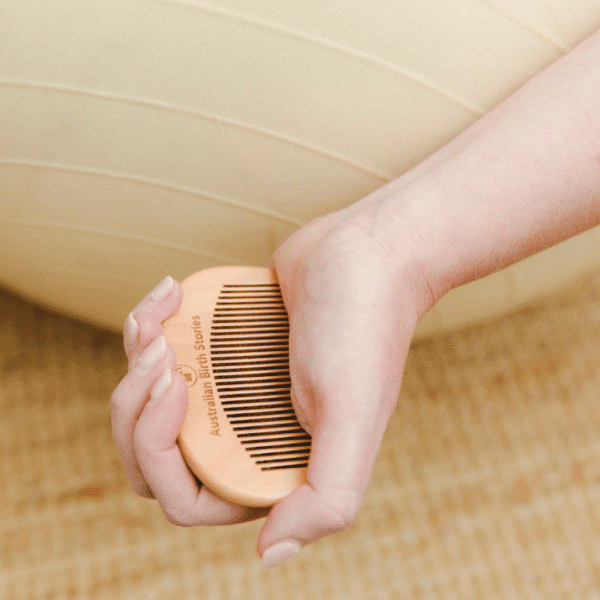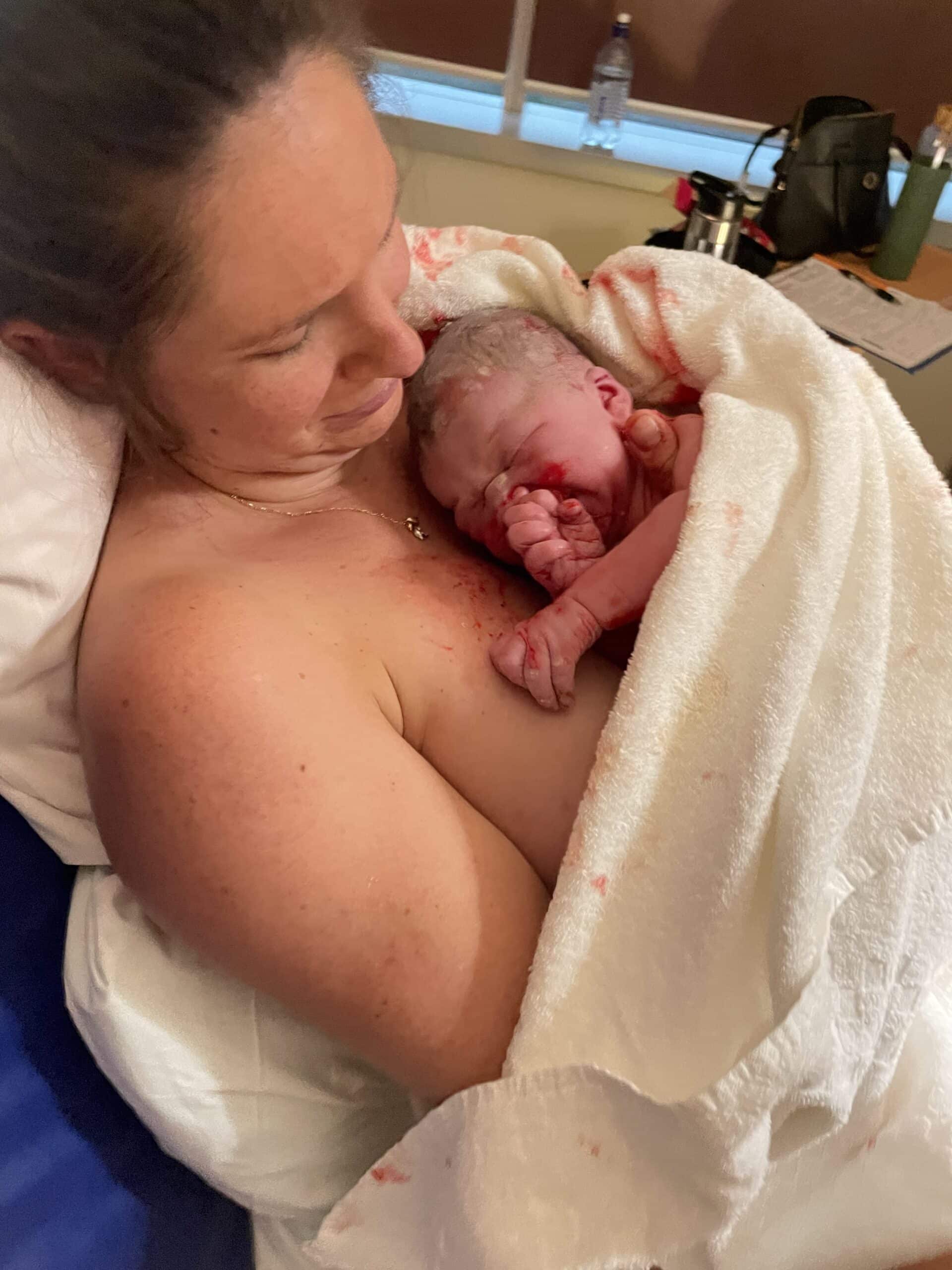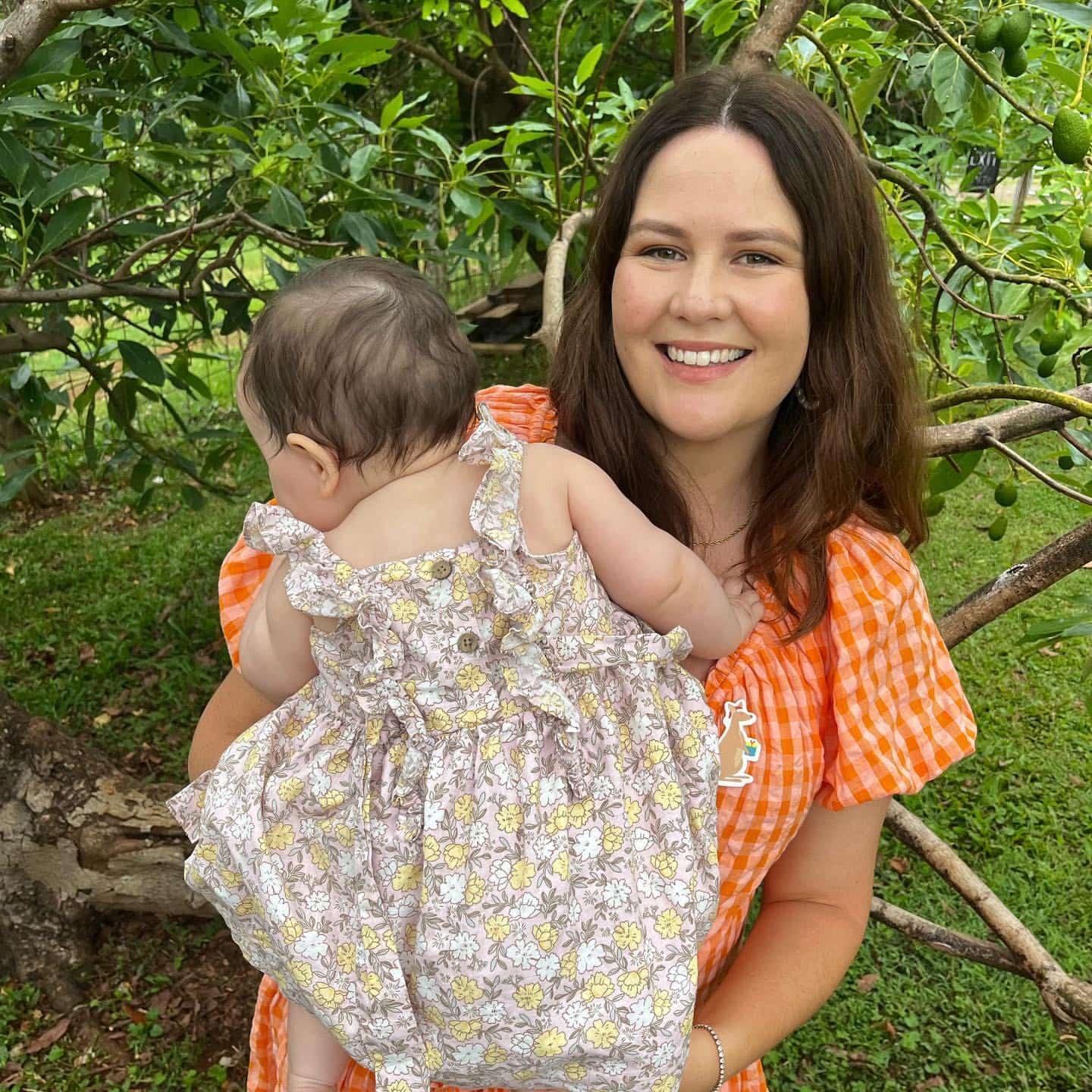Podcasts Dr. Amber Hart on Building Breastfeeding Confidence and Holistic Postpartum Care
EPISODE 562
Dr. Amber Hart on Building Breastfeeding Confidence and Holistic Postpartum Care

Amber addresses one of the most pervasive misconceptions about breastfeeding: that it should come naturally. “I just thought this would happen. I thought my body and my baby would know exactly what to do,” she quotes from countless mothers who’ve visited her clinic.
She uses a powerful analogy to illustrate the challenge: “Imagine that you’ve never seen a bicycle before in your life, and you are locked in a room with a complete stranger and a tandem bike and told to ride, you’re gonna fall over. Whereas if you had gone and practised before… you are not gonna be in crisis mode once this baby arrives.”
The key message is clear: antenatal education is one of the biggest indicators of breastfeeding success. “You need to have some skills before you go into that birthing process, and you need to have supports in place afterwards.”
Understanding Breastfeeding Pain: What’s Normal and What Isn’t
Addressing the statistic that 80% of women experience breastfeeding pain initially, Dr. Hart provides crucial guidance on distinguishing between normal discomfort and concerning pain. “It shouldn’t be painful,” she states firmly. “There’s no reason for women to be sitting there with tears dripping off their chin with their toes curled.”
She explains that whilst some tenderness is expected when using your body in a new way, “toe curling, eye watering breath, catching electric… those really horrible adjectives. They’re not normal.” Pain, she emphasises, is your body’s way of saying something needs attention.
Dr. Hart offers practical advice for new mothers: “If your nipple is coming out of that mouth with sharp lines on it, something is not right.” She explains that nipples should emerge elongated but smooth after feeding, not pinched or ridged.
The Tongue Tie Controversy: Evidence-Based Perspective
One of the most contentious topics Dr. Hart addresses is the dramatic rise in tongue tie diagnoses and treatments. She cites alarming statistics: “Over a 10 year period, 400% increase in Medicare billings for tongue tie releases… in America it was 800%. That’s not a normal evolutionary process. That’s over-diagnosis and overtreatment.”
Drawing on recent research by Dr. Nikki Mills and Eric Levi, who used MRI technology to observe babies feeding, Dr. Hart challenges common assumptions. Their groundbreaking study found that babies’ lips are “completely neutral” during feeding, contradicting the widespread belief that lips should be flanged out.
Regarding lip ties specifically, Dr. Hart is clear: “100% of babies are born with a lip frenulum. It’s normal anatomy.” The Australian Dental Association has stated that lip frenulums shouldn’t be released in children under five, as they don’t impact feeding and significant growth occurs in those early years.
For tongue ties, whilst acknowledging they can impact feeding, Dr. Hart emphasises the complexity: “I can have a baby that has a very, very, very tight frenulum and we release it and it makes absolutely no difference to the feed. I can have a baby that has a little bit of restriction… and the mum is amazed.”
Her approach is thoroughly holistic: “If I were to snip that frenulum and send you out of the room, you would be no better off than when you walked in the door. We have to assess a breastfeed before and after.”
Supporting Maternal Mental Health Through Feeding Challenges
Dr. Hart’s practice recognises the intricate connection between feeding success and mental wellbeing. “When breastfeeding is going well, it is incredibly protective of mental health. And when it’s not going well, it can be really quite harmful for mental health.”
She addresses the guilt many mothers experience when breastfeeding doesn’t go as planned: “This is not guilt. Guilt implies fault, and very few mothers are at fault here… This is not guilt, it’s grief. It’s grief that it hasn’t ended up the way that they had thought or hoped it would look.”
Her philosophy is refreshingly balanced: “I will never, ever promote breastfeeding at a woman’s expense or a baby’s expense. If we are doing this at the mum or the baby’s expense, then the risks of breastfeeding outweigh the benefits of breastfeeding.”
Practical Advice for Expectant Parents
Dr. Hart emphasises the importance of establishing proper support systems before birth. She’s changed her practice to better assess support quality: “It’s very, very important to actually define what that support is and whether it’s helpful support or not helpful support.”
She encourages difficult conversations before baby arrives: “It’s much easier to sit your mum and your dad and your in-laws down and say, ‘Hey, this might be a little bit tricky. I don’t want you to be offended if I ask you to leave’ before the baby arrives than when there’s this cute little baby that everybody wants to cuddle.”
For partners, she recommends preparation similar to birth planning: discussing what support looks like during challenging moments and understanding that whilst formula may be needed, it doesn’t have to be the first solution attempted.
Key Takeaways for New and Expectant Mothers
- Seek antenatal breastfeeding education – it’s one of the strongest predictors of success
- Understand what normal feeding looks like – including what pain is acceptable and what isn’t
- Build your support network thoughtfully – quality matters more than quantity
- Know when to seek help – early intervention prevents escalation of problems
- Remember that feeding can look different – exclusive breastfeeding, mixed feeding, or formula feeding can all be successful
- Trust your instincts – if something doesn’t feel right, seek professional support
This episode provides invaluable insights for pregnant women, new mothers, and birth professionals seeking evidence-based, compassionate approaches to infant feeding support.
You can connect with Amber at her centre in Melbourne: Maternal and Infant Wellbeing Melbourne.
Topics Discussed
Breastfeeding, Breastfeeding Confidence, Holistic Postpartum Care, Tongue-tie, Understanding Breastfeeding Pain
Categories
Related Products
-
Birth Combs: Harness Your Body’s Natural Pain Relief
$24.95Crafted from smooth, natural wood, our birth combs activate specific pressure points in your hands that trigger your body’s innate pain-relieving responses.
Join the conversation
Sign up to get the latest updates, freebies, podcast releases straight into your inbox
@AustralianBirthStories
Follow along with us
@AustralianBirthStories
Follow along with us
@AustralianBirthStories
Follow along with us
@AustralianBirthStories
Follow along with us
@AustralianBirthStories
Follow along with us
@AustralianBirthStories
Follow along with us
@AustralianBirthStories
Follow along with us
@AustralianBirthStories
Follow along with us
@AustralianBirthStories
Follow along with us
@AustralianBirthStories
Follow along with us
@AustralianBirthStories
Follow along with us
@AustralianBirthStories
Follow along with us





